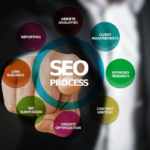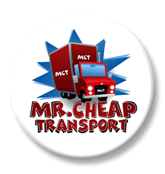On-page optimization is an important search engine optimization tool that helps in gaining prominent visibility and attracting significant traffic for the website. On-Page optimization is highly instrumental in increasing the functionality of a website. However, there certain guidelines that help in achieving the best on-page optimization service for your website.
Assign unique recognition to each page: Every page of your website is unique and should be treated differently. Make your page title, keyword tag and description unique. Remember to put the most important keyword related to the concerned page on the keyword tag. However, never make the mistake of incorporating every keyword relevant to your site as this would make your page more generic.
Always provide a site map: Site map is an excellent way of directing your visitors to every page of your website. Place the link to your sitemap on each individual page and also the link to other pages.
Watch out your title and Meta description: Remember that your page title is the one that the search engine crawls on first. Keep your title limited to 60-80 characters. Keep your title straight with no attempt at bluffing and also make sure that the title is relevant in context with the page’s content. Your Meta description should be an apt summary of your content and should be in the range of 160-180 characters.
Good content takes you a long way: Content is the primary factor that keeps your visitors intact to your website and compels them to go through your entire site. Your content should be a fine balance between information and the keywords. It is essential that your content has a fair density of keywords to allow the search engine scrawl it.
Judicious use of keywords: Any on-page optimization service is considered successful in its objective if it has a fair distribution of keywords in the page’s Meta Tag, heading tag, Alt tag and the content. So, use your keywords/keyword phrases in fair density through out the pages.
Use Alt Tags: Images lend an all-together different look to the website. However, the search engine cannot read the images, instead it would need a text. You should provide Alt Tags to your images that should have one or more keywords. The Alt Tags not only make your website rank well in search engine result but only score well in Google image search results.
Keep posting fresh content: Never assume that your responsibility has ended with the uploading of a website. You should upload fresh contents regularly on your website to encourage your visitors to visit your website regularly. There is nothing worse than a stale website that hardly has anything fresh to offer its visitor.
Things to avoid: Resist the temptation of using hidden links or text. Keep your content original and unique and discard any thought of producing duplicate content. Keep only relevant information in your website failing which the search engine will label your website worthless. As far as possible, refrain from using small words like and, the, for, or etc in your keywords.





















